★★★½
“While feeling incomplete, still a good primer for young action heroine fans.”
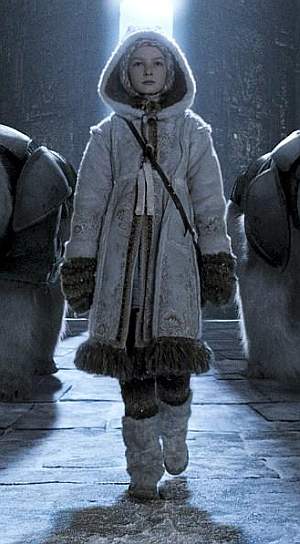 There aren’t that many decent action heroine films for kids: much as I love Bloody Mallory or Kill Bill, they aren’t really child-appropriate. At the other end, films like the Harry Potter or the Narnia series, while containing female characters of some importance, sideline them in favor of the boys. That makes this a refreshing breath of fresh air, in that the heroine is firmly front and center as she goes through her adventures. It’s set in an alternate universe where people’s souls take the form of animals that accompany them everywhere, known as daemons. Childrens’ daemons shapeshift, but adults’ ones are static in form. Things are run by an authoritative group called The Magisterium, but Lord Asriel (Craig) who has found “dust” in a far Northern land, that could challenge the established order – the Magisterium have been kidnapping children for use in human experiments to counter dust. Into this is dropped Asriel’s niece, Lyra Belacqua (Richards), who is given the last golden compass, a device able to answer any question in the right hands. she is about to head North with Mrs. Coulter (Kidman), only to find she has a central role in the kidnapping – as Lyra’s best friend has now vanished, she bravely heads off, initially on her own, to rescue him.
There aren’t that many decent action heroine films for kids: much as I love Bloody Mallory or Kill Bill, they aren’t really child-appropriate. At the other end, films like the Harry Potter or the Narnia series, while containing female characters of some importance, sideline them in favor of the boys. That makes this a refreshing breath of fresh air, in that the heroine is firmly front and center as she goes through her adventures. It’s set in an alternate universe where people’s souls take the form of animals that accompany them everywhere, known as daemons. Childrens’ daemons shapeshift, but adults’ ones are static in form. Things are run by an authoritative group called The Magisterium, but Lord Asriel (Craig) who has found “dust” in a far Northern land, that could challenge the established order – the Magisterium have been kidnapping children for use in human experiments to counter dust. Into this is dropped Asriel’s niece, Lyra Belacqua (Richards), who is given the last golden compass, a device able to answer any question in the right hands. she is about to head North with Mrs. Coulter (Kidman), only to find she has a central role in the kidnapping – as Lyra’s best friend has now vanished, she bravely heads off, initially on her own, to rescue him.
It’s a pretty cool adventure tale, with some stirring sequences and memorable characters – not least the armoured polar-bear (voiced by McKellen), who becomes Lyra’s protector. He doesn’t just sit around drinking Coke, let’s say, though the entirely bloodless nature of the battle sequences lessen the impact significantly, though is likely an inevitable result of the PG-13 certificate. It is satisfyingly full of strong female characters, on both sides: as well as Lyra and Mrs. Coulter, the witch queen Serafina Pekkala kicks almost as much ass as the polar-bear. But the film fails badly to tie up the ends, particularly Lord Asriel, who is kidnapped in the middle and then vanishes, almost without further mention, until a quick reference at the end. Admittedly, while there are decent reasons why – it was intended as the first in a trilogy – we are less concerned here with excuses than actuality. And in actuality, it peters out.
I have to say, I haven’t read the book on which this is based, but opinion generally finds the movie to be ‘dumbed-down’, not least for removing the book’s far greater criticism of religion [the Magisterium is a thinly-disguised version of the Catholic Church]. This is likely inevitable, given the film’s $180m budget, but didn’t stop a campaign to boycott the film – which worked rather better in the US than abroad. It took more than four times its US gross overseas – compare, say, the first Narnia film, where the foreign multiplier was only about 1.5. Its relative failure in America has thrown the sequels into doubt, especially in the current economic climate, and that’s a shame: the world could always use some more heroines, and what you get here is painfully and obviously unfinished. Maybe I’ll go read the books instead.
Dir: Chris Weitz
Star: Dakota Blue Richards, Nicole Kidman, Daniel Craig, Ian McKellen





 Andre (Debbouse) is at the end of his tether, owing large amounts of money to at least three separate gangs. He decides to end it all by leaping off a Parisian bridge into the Seine below, but is beaten to it by the tall, leggy blonde, Angela (Rasmussen, who you may remember in a bathroom stall with Rebecca Romijn-Stamos in the opening of Femme Fatale). His suicide forgotten, he jumps in to save her, and as they sit, dripping on the river-bank she vows that she will repay his selfless act by taking care of him. This may not be quite the way he expects; for example, she hijacks a negotiation with one of the mobsters to whom Andre owes money, marches upstairs and emerges not long afterwards, the debt apparently forgiven and with tens of thousands in bonus cash. Just as important as resolving his pecuniary problems are the emotional ones which plague Andre, and Angela is perhaps even more adept at addressing those: his lack of self-confidence, trust issues, an inability to give or receive love and so on. She sees the good person who is buried
Andre (Debbouse) is at the end of his tether, owing large amounts of money to at least three separate gangs. He decides to end it all by leaping off a Parisian bridge into the Seine below, but is beaten to it by the tall, leggy blonde, Angela (Rasmussen, who you may remember in a bathroom stall with Rebecca Romijn-Stamos in the opening of Femme Fatale). His suicide forgotten, he jumps in to save her, and as they sit, dripping on the river-bank she vows that she will repay his selfless act by taking care of him. This may not be quite the way he expects; for example, she hijacks a negotiation with one of the mobsters to whom Andre owes money, marches upstairs and emerges not long afterwards, the debt apparently forgiven and with tens of thousands in bonus cash. Just as important as resolving his pecuniary problems are the emotional ones which plague Andre, and Angela is perhaps even more adept at addressing those: his lack of self-confidence, trust issues, an inability to give or receive love and so on. She sees the good person who is buried  Khaled became internationally famous in 1969, for hijacking a TWA flight from Rome to Athens, diverting it to Damascus, where it was blown up – after everyone had been taken off [this was a kinder, gentler era of terrorism]. She then underwent plastic surgery to conceal her identity, and the following year tried to hijack another plane. However, air marshals shot her colleague and captured Khaled, who was taken into custody in London, only to be released soon afterwards as part of a prisoner exchange. She returned to the Middle East, her sky-piracy career at an end, but became an icon of the Palestinian movement, and remains active in it to this day, despite travel restrictions. The Guardian wrote of Khaled in 2001,
Khaled became internationally famous in 1969, for hijacking a TWA flight from Rome to Athens, diverting it to Damascus, where it was blown up – after everyone had been taken off [this was a kinder, gentler era of terrorism]. She then underwent plastic surgery to conceal her identity, and the following year tried to hijack another plane. However, air marshals shot her colleague and captured Khaled, who was taken into custody in London, only to be released soon afterwards as part of a prisoner exchange. She returned to the Middle East, her sky-piracy career at an end, but became an icon of the Palestinian movement, and remains active in it to this day, despite travel restrictions. The Guardian wrote of Khaled in 2001, A fascinating and complex character, it can’t be said that much of the complexity – both hers, and the entire Middle East situation – comes across in this documentary, less than a hour long. You get a quick romp through her early history, her family’s departure from then-Palestine just after World War II, both hijackings, and then we leap forward to the present day, where she’s a mother and works for a political group. There are some interesting moments, such as where she draws a line between what she did, and the 9/11 hijackings: “I don’t agree with the murders of civilians, no matter where in the world”, and she’s been consistent in expressing that. More probing questions would have been welcome: instead, Makboul – brought up in Sweden by her Palestinian parents – admits to having been basically a fan. She interviews others involved in the hijacks, such as a stewardess and the crew, and follows Khaled on a trip to the Chatila refugee camp in the Lebanon, but the film ends abruptly, just as she asks Khaled about the negative image of Palestinians as terrorists that she helped create.
A fascinating and complex character, it can’t be said that much of the complexity – both hers, and the entire Middle East situation – comes across in this documentary, less than a hour long. You get a quick romp through her early history, her family’s departure from then-Palestine just after World War II, both hijackings, and then we leap forward to the present day, where she’s a mother and works for a political group. There are some interesting moments, such as where she draws a line between what she did, and the 9/11 hijackings: “I don’t agree with the murders of civilians, no matter where in the world”, and she’s been consistent in expressing that. More probing questions would have been welcome: instead, Makboul – brought up in Sweden by her Palestinian parents – admits to having been basically a fan. She interviews others involved in the hijacks, such as a stewardess and the crew, and follows Khaled on a trip to the Chatila refugee camp in the Lebanon, but the film ends abruptly, just as she asks Khaled about the negative image of Palestinians as terrorists that she helped create.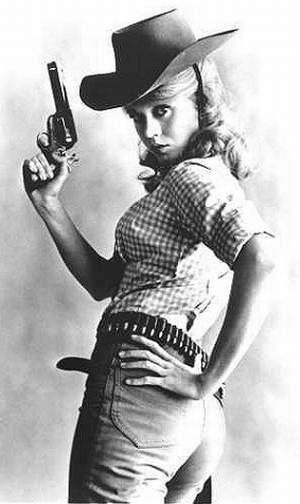 Aspiring teacher Catherine Ballou (Fonda), heads home to see her father in Wyoming, but finds him engaged in a struggle over his land with a land baron, and threatened by the villainous Tim Strawn (Marvin). She sends for legendary gun-fighter Kid Shelleen (also Marvin) to come protect them, only to find he is less legendary gun-fighter, and more alcoholic bum, incapable of saving himself. Strawn shoots Cat’s father and, when justice fails to be served, she heads off to a nearby outlaw town, where she vows to bring the land baron down and take revenge herself.
Aspiring teacher Catherine Ballou (Fonda), heads home to see her father in Wyoming, but finds him engaged in a struggle over his land with a land baron, and threatened by the villainous Tim Strawn (Marvin). She sends for legendary gun-fighter Kid Shelleen (also Marvin) to come protect them, only to find he is less legendary gun-fighter, and more alcoholic bum, incapable of saving himself. Strawn shoots Cat’s father and, when justice fails to be served, she heads off to a nearby outlaw town, where she vows to bring the land baron down and take revenge herself.
















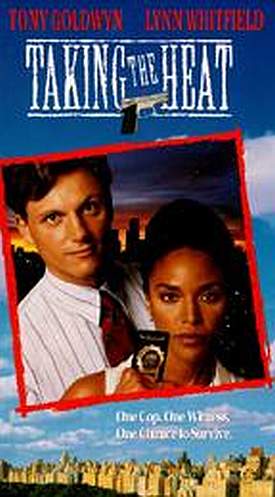 Michael Norell (Goldwyn) sees mob boss Tommy Canard (Arkin) whacking a debtor, but won’t admit it to the cops. However, when they look at the credit-card transactions, the truth comes out and Detective Hunter (Whitfield) is sent to retrieve the witness; Canard, thanks to a mole, also finds out and send his top hitman to ensure Norell never reaches the courthouse. A heatwave has simultaneously hit New York, leading to blackouts, gridlock and a breakdown in communications, so it’s down to Detective Hunter, back on her old stomping ground, to negotiate her way through the traffic jams and dodge the killers out to get Norell.
Michael Norell (Goldwyn) sees mob boss Tommy Canard (Arkin) whacking a debtor, but won’t admit it to the cops. However, when they look at the credit-card transactions, the truth comes out and Detective Hunter (Whitfield) is sent to retrieve the witness; Canard, thanks to a mole, also finds out and send his top hitman to ensure Norell never reaches the courthouse. A heatwave has simultaneously hit New York, leading to blackouts, gridlock and a breakdown in communications, so it’s down to Detective Hunter, back on her old stomping ground, to negotiate her way through the traffic jams and dodge the killers out to get Norell.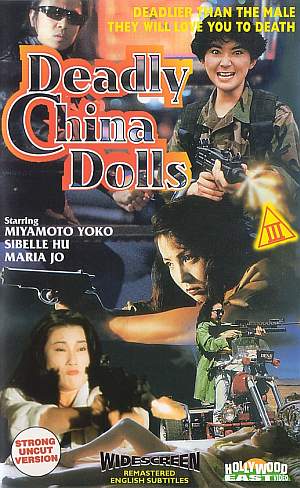
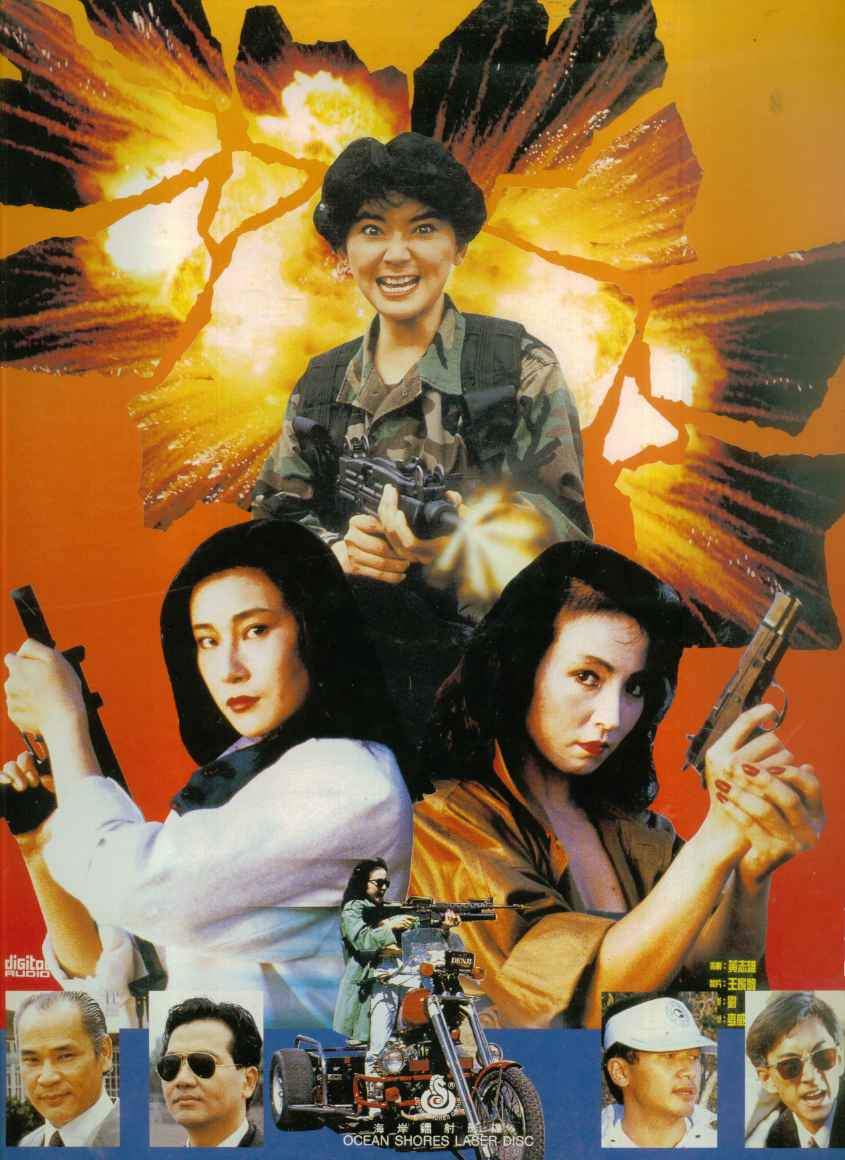 The action is even more copious than the nudity however, and not bad, though one suspects a fair amount of doubling for the main actresses is going on. Despite Ho’s reputation as a complete hack [some of his films consist entirely of footage spliced together from other movies], he knows the right buttons for action heroine fans, and how to push most of them. On what I strongly suspect was a poverty-row budget – you don’t go to the Phillippines for the scenery – the movie delivers an impressive quantity of action, mixing firearm-toting and martial-arts battles to decent enough effect. All of the actresses get their moments to remember: a massacre in a restaurant and a supermarket shoot-out stand out in particular, as well as the roof-top fight between Hu and Yuen.
The action is even more copious than the nudity however, and not bad, though one suspects a fair amount of doubling for the main actresses is going on. Despite Ho’s reputation as a complete hack [some of his films consist entirely of footage spliced together from other movies], he knows the right buttons for action heroine fans, and how to push most of them. On what I strongly suspect was a poverty-row budget – you don’t go to the Phillippines for the scenery – the movie delivers an impressive quantity of action, mixing firearm-toting and martial-arts battles to decent enough effect. All of the actresses get their moments to remember: a massacre in a restaurant and a supermarket shoot-out stand out in particular, as well as the roof-top fight between Hu and Yuen.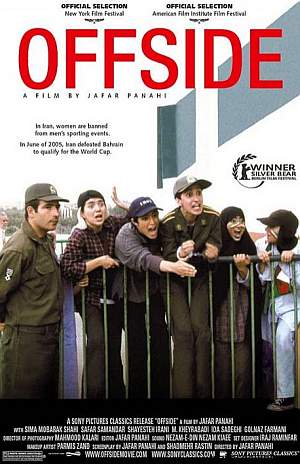 Being an action heroine is a rebellious, possibly revolutionary, act against society: what counts, depends entirely on how your society views women. Going to a soccer game, for example, would not qualify you in the Western world – but as in Ancient Greece, sporting events in Iran are strictly male-only, and a woman who attends one and gets caught, will find herself handed over to the Vice Squad. It redefines requirements somewhat, to say the least. The film tells the story of a number of women, who dress as men to sneak into a crucial 2005 World Cup qualifier between Iran and Bahrain, only to find their disguises imperfect. They’re held in an area, just out of sight of the game, by a group of soldiers, who really have better things to do themselves.
Being an action heroine is a rebellious, possibly revolutionary, act against society: what counts, depends entirely on how your society views women. Going to a soccer game, for example, would not qualify you in the Western world – but as in Ancient Greece, sporting events in Iran are strictly male-only, and a woman who attends one and gets caught, will find herself handed over to the Vice Squad. It redefines requirements somewhat, to say the least. The film tells the story of a number of women, who dress as men to sneak into a crucial 2005 World Cup qualifier between Iran and Bahrain, only to find their disguises imperfect. They’re held in an area, just out of sight of the game, by a group of soldiers, who really have better things to do themselves. Particularly outstanding is Irani’s tomboy, who becomes the de facto leader of the group, and continually hassles the guards. The film has a surprising amount of straight-faced humour, such as her riposte when asked if she’s a boy or a girl: “Which do you prefer?” Or one girl’s response when told they can’t go in because the men will be cursing: “We promise not to listen.” Similarly, when another needs to use the bathroom, this poses problems, since naturally there are no women’s facilities. The solution involves the impromptu conversion of a poster into a mask, though this hardly resolves things. Obviously, it’s not a traditional genre piece, and it’s this
Particularly outstanding is Irani’s tomboy, who becomes the de facto leader of the group, and continually hassles the guards. The film has a surprising amount of straight-faced humour, such as her riposte when asked if she’s a boy or a girl: “Which do you prefer?” Or one girl’s response when told they can’t go in because the men will be cursing: “We promise not to listen.” Similarly, when another needs to use the bathroom, this poses problems, since naturally there are no women’s facilities. The solution involves the impromptu conversion of a poster into a mask, though this hardly resolves things. Obviously, it’s not a traditional genre piece, and it’s this 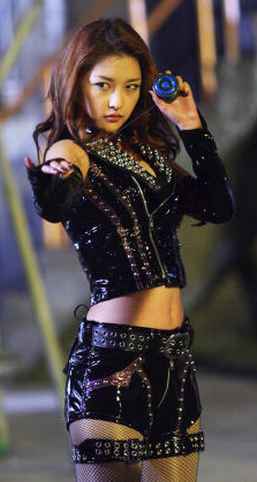
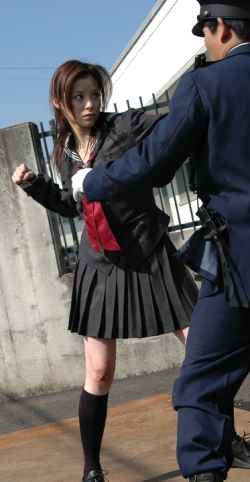 “Yo-yo. Girl. Cop,” said Chris, burdening those three words with sarcasm, as only she can, and giving me one of those sidelong glances, heavy with additional meaning. Hey, what can I say. This was an unexpected revival of the series, from 2006, with the lead played by pop singer Matsura. She is a wild-child coerced into undercover work by Kazutoshi Kira (Takeuchi, from Takashi Miike’s Dead or Alive trilogy), to save her mother who is being held on espionage charges in the US [in a nice touch, Mom is played by Yuki Saito, who was the first live-action Sukeban Deka, in the original TV series]. Her mission – should she choose to accept it – is to go into a high-school and uncover those behind the threatening Enola Gay website, a neo-terrorist URL that now has a counter on it, with less than 72 hours remaining. She befriends Konno Tae (Okada), the meek victim of relentless bullying, and also encounters the school’s queen bee, Reika Akiyama (Rika Ishikawa – shown right, and another pop singer, like Okada part of the v-u-den group) and her clique. Can she work out what’s going down, and pull the plug on it?
“Yo-yo. Girl. Cop,” said Chris, burdening those three words with sarcasm, as only she can, and giving me one of those sidelong glances, heavy with additional meaning. Hey, what can I say. This was an unexpected revival of the series, from 2006, with the lead played by pop singer Matsura. She is a wild-child coerced into undercover work by Kazutoshi Kira (Takeuchi, from Takashi Miike’s Dead or Alive trilogy), to save her mother who is being held on espionage charges in the US [in a nice touch, Mom is played by Yuki Saito, who was the first live-action Sukeban Deka, in the original TV series]. Her mission – should she choose to accept it – is to go into a high-school and uncover those behind the threatening Enola Gay website, a neo-terrorist URL that now has a counter on it, with less than 72 hours remaining. She befriends Konno Tae (Okada), the meek victim of relentless bullying, and also encounters the school’s queen bee, Reika Akiyama (Rika Ishikawa – shown right, and another pop singer, like Okada part of the v-u-den group) and her clique. Can she work out what’s going down, and pull the plug on it?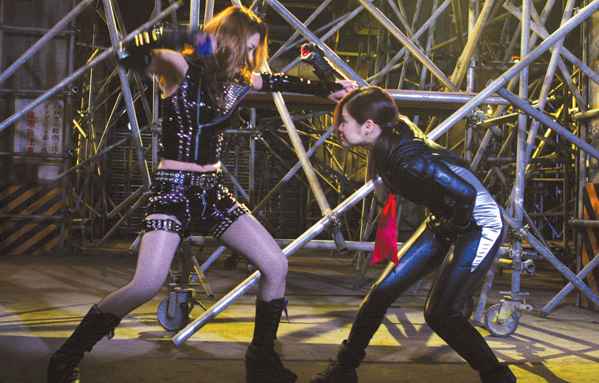
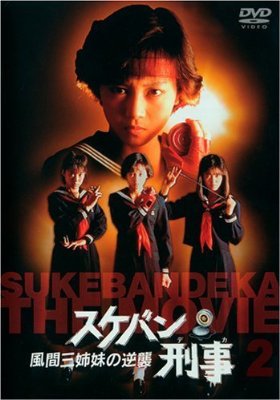 Perhaps the most startling thing here is the amount of political subtext, albeit likely somewhat unintentional. Saki Asamiya (Asaka) is part of the student police force, but feels they are overly brutal, beating anyone who “isn’t a straight arrow”, to quote Asamiya. This leads her to quit, heading off for a spot of slow-motion horse-riding more befitting a feminine hygiene commercial. However, she returns, teaming up with her sisters, when she discovers that her erstwhile colleagues are staging terrorist attacks, and blaming them on a group called the Outcast League, a with the aim of strengthening their position and gaining even greater powers. Asamiya joins the League, only to find the full force of the law now turned on her.
Perhaps the most startling thing here is the amount of political subtext, albeit likely somewhat unintentional. Saki Asamiya (Asaka) is part of the student police force, but feels they are overly brutal, beating anyone who “isn’t a straight arrow”, to quote Asamiya. This leads her to quit, heading off for a spot of slow-motion horse-riding more befitting a feminine hygiene commercial. However, she returns, teaming up with her sisters, when she discovers that her erstwhile colleagues are staging terrorist attacks, and blaming them on a group called the Outcast League, a with the aim of strengthening their position and gaining even greater powers. Asamiya joins the League, only to find the full force of the law now turned on her. This film was made between season two and season three of the television series, and represents a passing of the torch from Saki, SD #2 (Minamino) to SD #3 (Asaka), in preparation for the upcoming TV show. Saki has just about given up her life as a detective, but finds herself dragged in when she, literally, bumps into someone on the street. He turns out to be an escapee from Hell Castle, a reform school for wayward kids on an island near Tokyo, and she discovers that Principal Hattori (Ibu) is training the pupils to be a brainwashed army for an upcoming coup d’etat [the word is exactly the same in Japanese, incidentally]. She goes to her bosses with the information, but the investigation is quickly killed from above, for reasons I’m sure you can guess. So, it’s up to Saki to put together a team, sneak onto the island, rescue the inmates and stop Hattori. He turns out to be a nemesis from the TV show, though that back-story will, for obvious reasons, be lost on the vast majority of Western viewers.
This film was made between season two and season three of the television series, and represents a passing of the torch from Saki, SD #2 (Minamino) to SD #3 (Asaka), in preparation for the upcoming TV show. Saki has just about given up her life as a detective, but finds herself dragged in when she, literally, bumps into someone on the street. He turns out to be an escapee from Hell Castle, a reform school for wayward kids on an island near Tokyo, and she discovers that Principal Hattori (Ibu) is training the pupils to be a brainwashed army for an upcoming coup d’etat [the word is exactly the same in Japanese, incidentally]. She goes to her bosses with the information, but the investigation is quickly killed from above, for reasons I’m sure you can guess. So, it’s up to Saki to put together a team, sneak onto the island, rescue the inmates and stop Hattori. He turns out to be a nemesis from the TV show, though that back-story will, for obvious reasons, be lost on the vast majority of Western viewers.